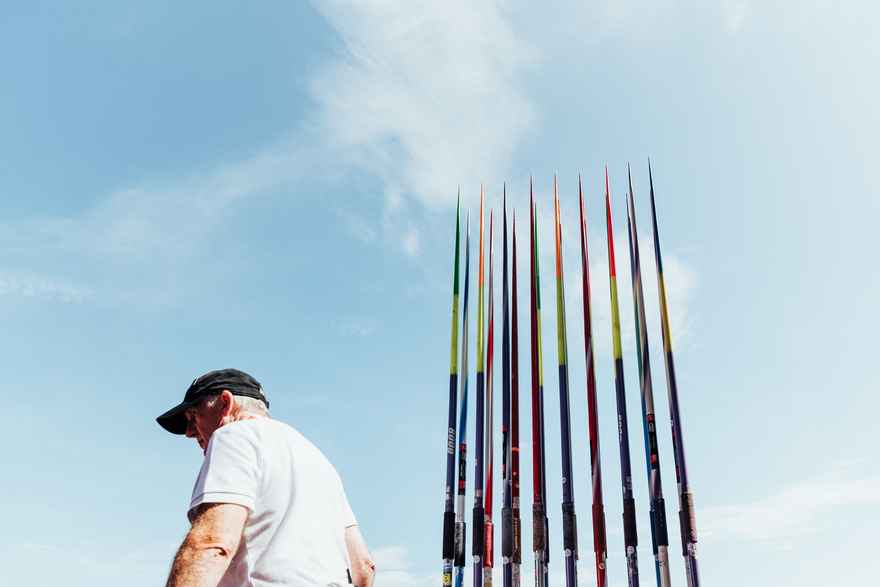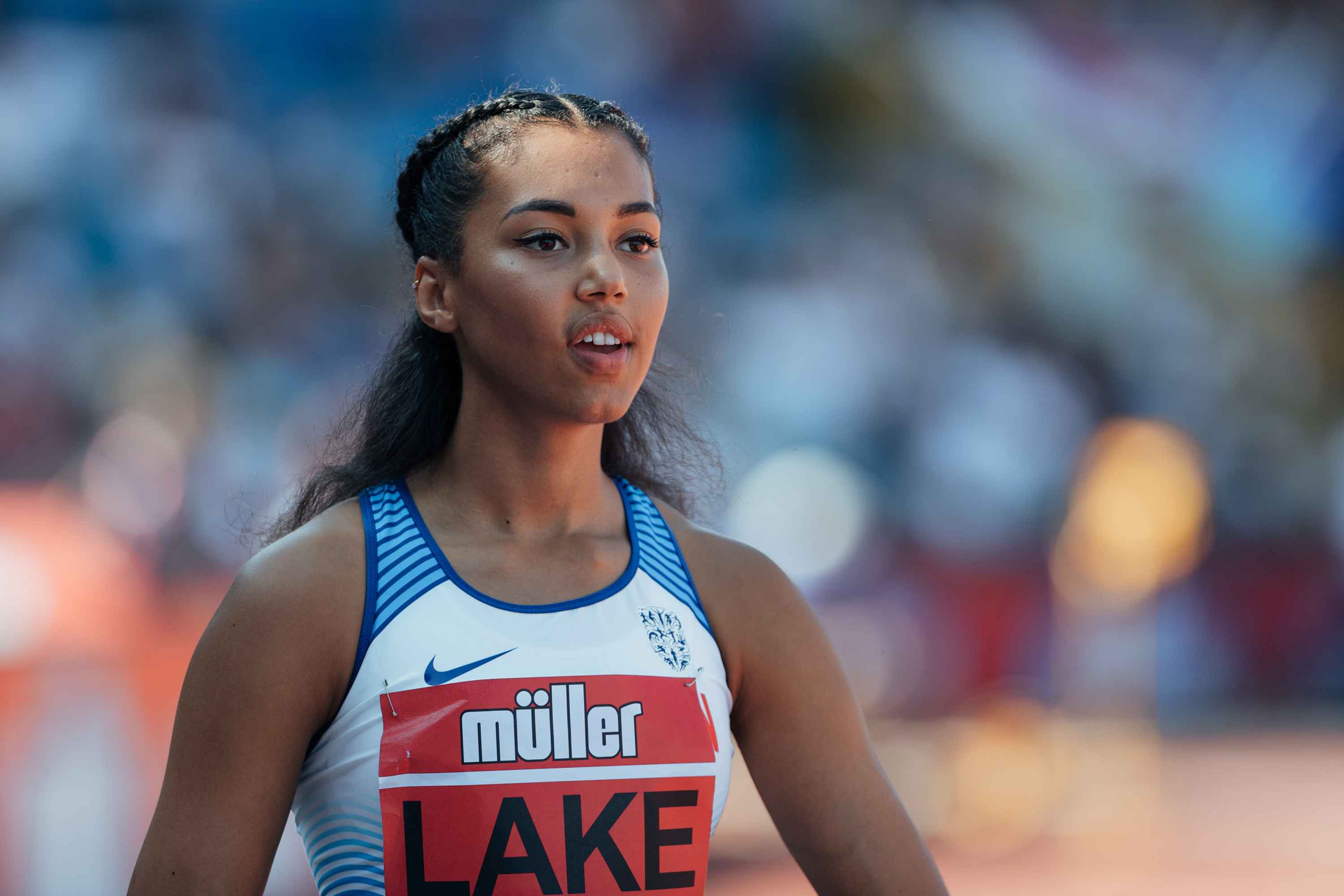Should Young Athletes Specialise?

When young, most sporty kids will have a go at any sport because, at that stage in life, it simply represents FUN. The more they do, the more friends they make and the more fun they have. This can become a huge logistical challenge for us as we frantically try to fit it all in... but hey, at least our kids are happy! But what happens when they start showing genuine ability in a sport? These athletes have two options: specialise in that sport or continue with all, otherwise known as 'generalisation'.
In this blog, we look at this scenario and ask:
- Should they focus solely on that sport and ditch the others?
- Can this option adversely affect progress?
- Can this affect them on a personal level?
- Is there a right or wrong route?
What is Early Specialisation and Generalisation?
Unsurprisingly, early specialisation versus generalisation has become a much-talked-about topic as pressure for success within children's sports continues to rise. But what do these terms actually mean?
Early sport specialisation is “intense year-round training in a specific sport with the exclusion of other sports at a young age” (1)
and
A generalised approach is “participation in a variety of sports and activities through which an athlete develops multilateral physical, social, and psychological skills” (2).
From these definitions, it's clear that both have pros and cons and that weighing these up will be essential to any decision-making process. While leaving all options open and playing the waiting game offers countless advantages, specialising in one event undoubtedly allows for a more event-specific approach to training, focus, and opportunities, opening up the possibility for faster and more likely improvement. However, this route can also be problematic and fraught with challenges.
Generalised Approach - The Advantages
It's easy to see how a more generalised approach where kids continue to participate in multiple sports has many advantages. It increases their chances of:
-
Seeing sport as fun (resulting in longer engagement, which, in turn, increases the chance of success).
-
Finding an event they enjoy.
-
Finding an event that ‘clicks’ and ultimately becomes their event.
- Having multiple and diverse friendship groups.
- Acquiring a more extensive range of motor skills that can ultimately benefit their eventual specialist sport.
Early Specialisation: The Disadvantages
Experiences and Choice
Missing out on opportunities to participate in other sports/disciplines denies the chance to excel in them. How sad would it be if their actual speciality was an event they never tried! Of course, you (and they) will never know in this situation, but you get my point! The saying “you don’t know until you try” rings so true.
Social Interactions and Friendships
By participating in only one sport, they are also missing out on the additional (and sometimes more diverse) social interactions that multiple sports participation can provide and the varied friendship groups that can result. As young athletes tend to rank enjoyment and friends as their primary drivers for pursuing sports, friendships should be one of, if not the most important, considerations when deciding whether to specialise.
Increased Injury Risk
Of course, specialisation brings with it training that's more likely to involve the same body parts being worked more intensively than if multiple sports were being played. And as performance levels rise, this intensity will increase, with the same or similar movements likely to be repeated for extended periods of time and on a more regular basis.
Additionally, a teenage athlete's body (especially the muscles, bones, ligaments, tendons, etc.) is still developing and will be more susceptible to strains, tears, and fractures. When these factors are combined, it's clear to see how the risk of injury can increase through early specialisation.
Increased Pressure
When one considers the number of young athletes across all sports who have excelled at youth and junior levels but failed to succeed as a senior, we have to wonder why. Could early specialisation have played a part?
As we've mentioned, the increased risk of injury can prematurely end careers, but one of the most challenging factors is undoubtedly the level of pressure and expectation that specialisation can bring. This can, for some, literally suck the joy out of a sport they once loved and them walking away for good.
When Early Specialisation Pays Off
For some, early specialisation has clearly worked. Take global stars like Serena Williams, Venus Williams, and Tiger Woods, who famously focused on their chosen sport from a very young age. Mondo Duplantis, the Swedish pole vaulter and current World Record holder, started vaulting at three, set his first age-group world best at seven, and has basically never stopped! His father, incidentally, was a pole vaulter.
But are these the exceptions?

'Mondo' Duplantis
Delayed Specialisation
An increasing number of experts are now tending to favour delayed specialisation.
The tennis player Roger Federer is the perfect example illustrating the advantages of the generalisation approach. His mother, a tennis coach, is said to have insisted that he continued a variety of other sports (namely badminton and basketball) during his early years, and it is these sports that he now attributes his superior hand-eye coordination in his tennis. It is also worth noting that at 40 years old, he was still at the top of the game before retiring. Further fuel for the generalisation-longevity argument!

Karsten Warholm: by Getty
Another example of a world-class athlete who participated in multiple disciplines to then specialise and then dominate is Karsten Warholm, the 400m hurdles World Record holder. His unquestionable superiority in the event has been attributed to his younger years as a decathlete and the all-body strength and fitness this provided.
The GB Olympian Morgan Lake also started as a heptathlete, later specialising in and gaining world success in the high jump.

Morgan Lake by Jodi Hanagan
What the Experts Say
David Epstein’s book Range brilliantly investigates the question of generalisation vs. specialisation. For those of you who like a good read, this book discusses this subject’s relevance in several areas of life, not just sport. It also questions the whole 10,000-hour training theory. His take-home message is that early generalisation leading to later specialisation is, more often than not, the most effective strategy.
In this short video, David Epstein discusses this subject with Malcolm Gladwell, the author of Outliers: The Story Of Success.
(Click here for a more lengthy discussion on this subject)
Should Your Athlete Specialise?
Answer: It depends!
Decisions regarding early specialisation will inevitably impact the athlete's life, happiness and sporting future. Whether this impact is positive or negative will depend on the individual athlete's personality and circumstances. As all athletes are different, what works for one may not work for another. For some, specialisation may be a positive game-changer, but it's also not uncommon to hear of athletes who have specialised young and quit just a few years later.
In short, careful consideration is essential before making such a life-changing decision. The athlete's personality and circumstances should be the guiding factors and should always be considered above the desires of parents and/or coaches.
The Decision Process
For parents, viewing specialisation as the golden ticket can be tempting. But taking a step back and considering the bigger picture is absolutely essential.
A good starting point is to weigh up your child's health and happiness versus the quicker route to (possible) success that specialisation offers:
- Will their personality and circumstances make them likely to cope with the inevitable pressure?
- Will they enjoy and thrive under this pressure?
- Remember, this is 100% about them... not you!
For parents of exceptionally talented athletes, these decisions can be especially difficult if pressure is coming from coaches or talent scouts, but you worry your child won't cope. Remember, you know your child better than any coach or scout...
Take Home Points
The general consensus appears to be that caution should be applied when considering specialisation during the early years,
The ‘too much too soon’ scenarios should be avoided to reduce the likelihood of injury.
Allowing young athletes to participate in multiple sports allows them to choose their speciality in their own time and based on their own experiences... rather than the assumptions of others.
Allowing sport to be an unrushed journey of discovery removes the joy-killing pressures of expectation that young people are not yet equipped to deal with.
To go the extra mile to help your child achieve their sporting dreams, check out our
Ultimate Guide To Athlete Parenting
Featuring expert advice and elite athlete insights on nutrition, sleep, psychology, and much more.
VIEW FREE CONTENT BUNDLE or BUY NOW.
References:
-
Ferguson, B, and Stern, PJ. A case of early sports specialization in an adolescent athlete. Journal of the Canadian Chiropractic Association 58(4): 337-383, 2014.
-
Wiersma, LD. Risks and benefits of youth sport specialization: Perspectives and recommendations. Pediatric Exercise Science 12(1): 13-22, 2000.


0 comments
Leave a comment
Please log in or register to post a comment